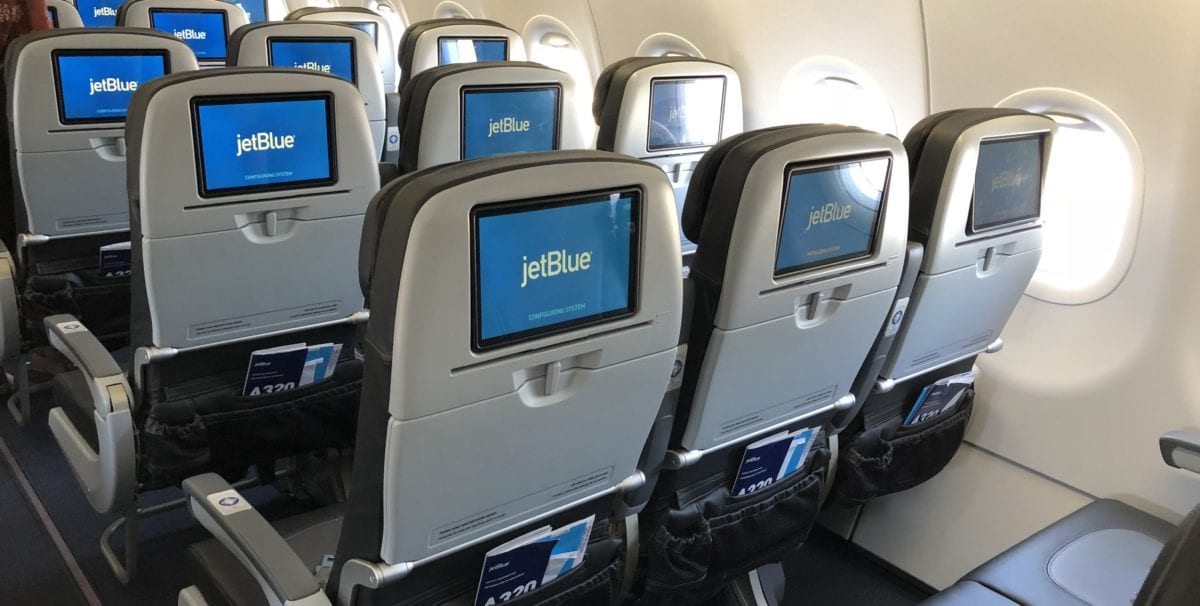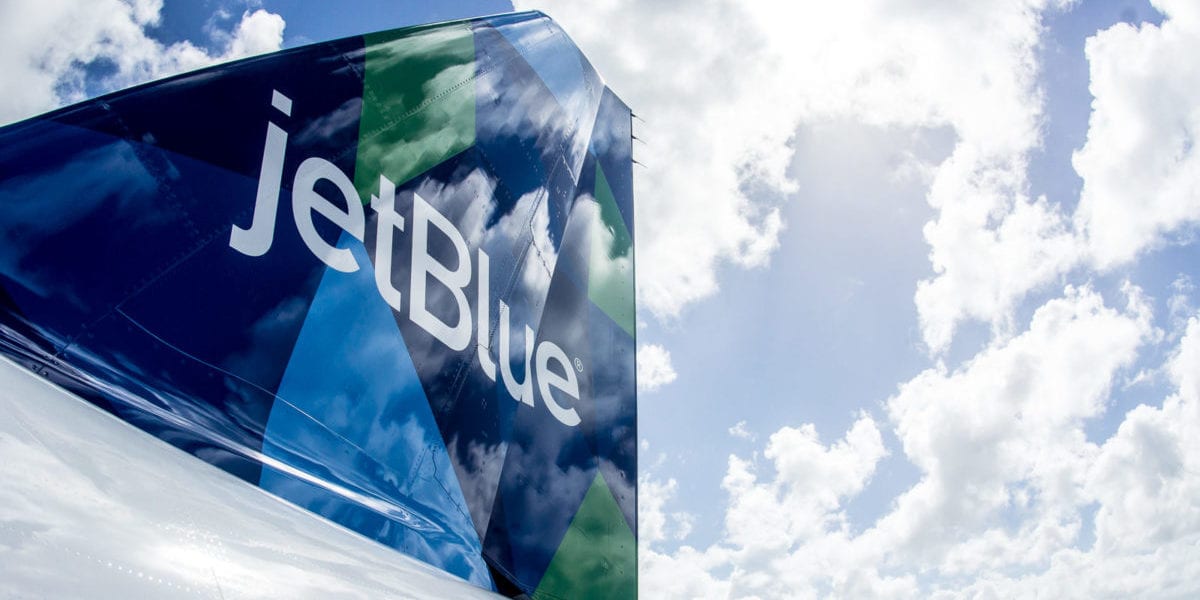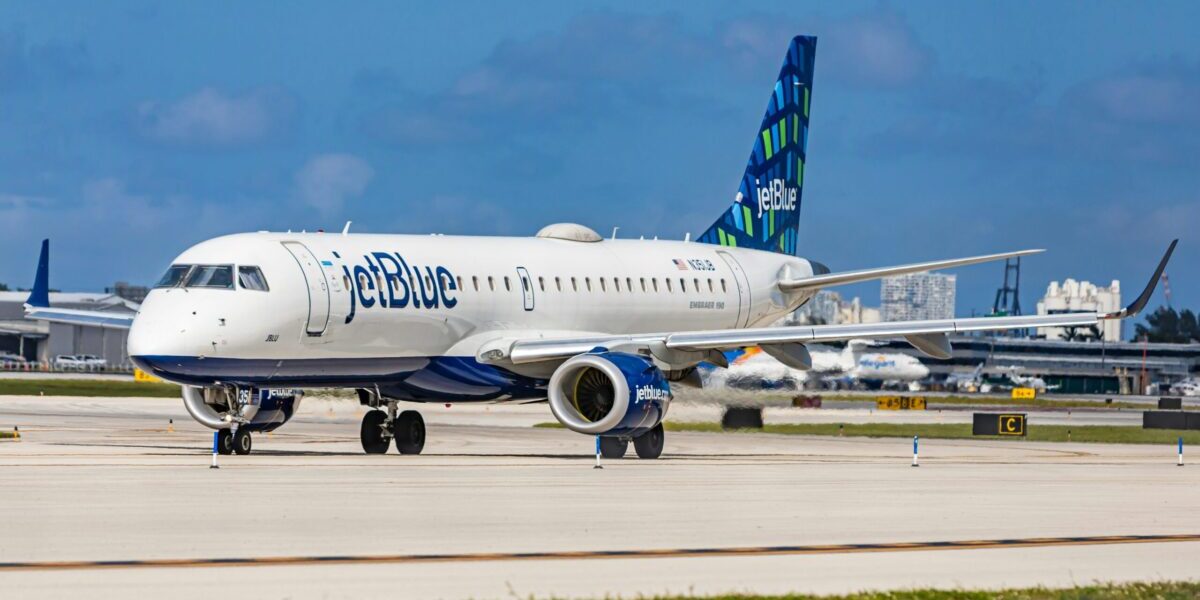Spirit Airlines and Frontier turned heads this winter with an unexpected announcement that they planned to merge, creating one mega budget carrier. JetBlue might have just turned those plans upside down.
JetBlue confirmed it had placed a $3.6 billion bid on Tuesday to take over Spirit, shortly after The New York Times reported the news. And JetBlue could make it hard for Spirit to say no: That's 40% more than the price Frontier would pay in their own proposed merger.
JetBlue labeled it “a superior offer” to what Frontier put on the table in February, arguing the two combined carriers could better compete against the “Big Four” airlines – American, Delta, Southwest, and United – on price with a stronger presence in many major cities. In JetBlue's vision, the combined airline would make a bigger JetBlue with service and planes that match its current offering – not like Spirit's with slim seats and little legroom.
“We’re not changing strategy with this, we’re accelerating our strategy,” JetBlue CEO Robin Hayes told Wall Street analysts on Wednesday.
Spirit's board has not yet made a decision about what to do with JetBlue's offer, the Times reports. In its own press release, Spirit confirmed it had received “an unsolicited offer” from JetBlue.
That offer itself throws a wrench in Spirit and Frontier's plans to combine to form the nation's largest ultra-low-cost carrier. Spirit and Frontier are shockingly similar already. They use nearly identical business models: Use ultra-low fares to lure customers into slimmer seats and charge fees for everything from seat selection to checked bags to carry-on luggage. Their fleets of Airbus A320s will work well together. Both airlines have been shaped by industry maven and investor William Franke, who would chair the board of the combined airline.
JetBlue and Spirit, however, would be an odd marriage.
Since its inception in the late '90s, JetBlue has based its entire brand on being customer friendly. Their planes have some of the most generous legroom you'll find in the country, with inflight entertainment at every seat as well as gate-to-gate Wi-Fi available for free to all passengers. It has an incredible Mint first class seat, with an even sharper setup on its relatively new service from the U.S. to London.

Read our review of flying JetBlue!
Spirit, meanwhile, is best known for knee-crunching legroom, stiff seats and high fees in exchange for lower fares. Despite that mismatch, JetBlue insisted there's a great way to make it work.
Both airlines focus on carrying everyday travelers and vacationers, not so many business travelers. They've got strong hubs in Florida where they could be even more dominant by combining forces. They both almost exclusively operate Airbus fleets, which helps keep costs lower.
And after shrinking to survive the pandemic, airlines are now struggling to grow fast enough to capture surging travel demand. More pilots, flight attendants, and planes from Spirit could allow JetBlue to do just that.
“It really tubocharges our organic plan in a way that would take us much longer to do,” Hayes said while explaining their offer during a Wednesday conference call.
In its own release, JetBlue said it planned to rebrand and retrofit Spirit jets to look and feel more like JetBlue. With a fleet of more than 170 planes, overhauling Spirit's existing fleet would not be cheap.
“The current merger proposal assumes the rebranding and retrofitting of Spirit’s fleet as JetBlue, introducing a superior onboard experience to Spirit customers,” the company wrote.
Whether Spirit moves ahead with Frontier or decides to get swallowed up by JetBlue instead, any deal will need the approval of the Biden administration – and that's no sure thing. Biden has signaled a strong stance against consolidation in key industries, arguing that less competition leads to higher prices for consumers and lower wages for workers.
A combined Spirit-Frontier would make the nation's largest fifth-largest airline. Spirit folded into JetBlue would be even larger. Assuming the combined airline looks more like JetBlue, it would remove a strong low-cost competitor from the market. That's not good for fares.
Plus, JetBlue is already under the Department of Justice microscope for its partnership with American Airlines in the Northeast, dubbed the Northeast Alliance (NEA). JetBlue signaled no plans to walk away from that partnership as it tries to gobble up Spirit.
“We view a combination with Spirit as perfectly complementing the NEA. These strategic moves aim to increase our relevance and bring the JetBlue competitive effect to more places while deepening our roots in the communities we call home,” the airline said.


